68 F. high in the Twin Cities Wednesday.
64 F. average high on April 29.
42 F. high on April 29, 2014.
Trace of snow fell on April 29, 2014.
April 29, 1984: Late season snow blankets the Twin Cities with 6.6 inches.
April 29, 1940: Heavy rains in Duluth with 3.25 inches of rain. Source: MPX National Weather Service.
64 F. average high on April 29.
42 F. high on April 29, 2014.
Trace of snow fell on April 29, 2014.
April 29, 1984: Late season snow blankets the Twin Cities with 6.6 inches.
April 29, 1940: Heavy rains in Duluth with 3.25 inches of rain. Source: MPX National Weather Service.
Tornado Magnets?
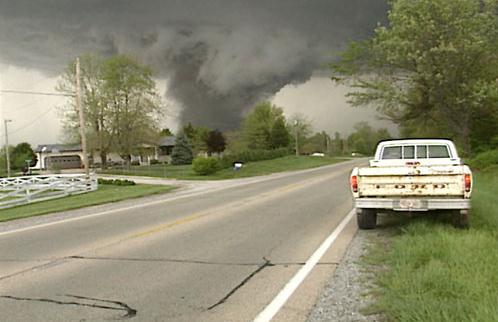
Fact can be much stranger than fiction. Yes, tornadoes CAN cross rivers, lakes and hills, and even hit downtowns. And no, trailer parks don't "attract" tornadoes, but when they hit damage is often extreme.
Now comes new research at Purdue University suggesting that "transition zones", regions where two distinct types of landscapes meet (farmland and suburbs for example) are more vulnerable to tornado damage. This is where trailer parks are often located. The nature of Earth's surface may influence where tornadoes form and where they go on to inflict the most damage. Emerging science; more details on my weather blog below.
The only thing severe today is sunburn potential. Keep in mind the potential to fry has nothing to do with air temperature and everything to do with the date, the sun angle high overhead.
Test scores and job productivity will suffer once again today under a brilliant sun with light winds, low humidity and a lukewarm afternoon near 70F.
San Diego with lakes.
A growl of thunder arrives Friday; a few severe T-storms are even possible Sunday. A drought-denting storm is possible the middle of next week.
Yes, we're having a real spring this year. Imagine that.

Why Tornadoes Find and Flatten Trailer Parks. No, mobile homes don't "attract" tornadoes in some strange and supernatural way, but in most metro areas the regions where trailer parks are most likely to be located is also at heightened risk of tornadoes, as explained by azcentral.com; here's an excerpt that made me do a double-take: "...This gets complicated, meaning I didn't understand it very well, but the study showed some statistical evidence tornadoes cause the most damage in "transition zones." Those are areas of the Earth's surface where two distinct types of landscapes meet. That would include areas such as the fringes where urban sprawl and farmland or forests and plains meet. And those fringe areas tend to be where trailer parks are most frequently located..."
Photo credit above: "Mike Cook surveys the damage in what is left of his home at River Oaks mobile home community in Sand Springs, Okla., Thursday, March 26, 2015, after a tornado on Wednesday. Oklahomans salvaged soggy belongings Thursday after the Plains' first tornado outbreak of the year." (AP Photo/Tulsa World, Mike Simons).
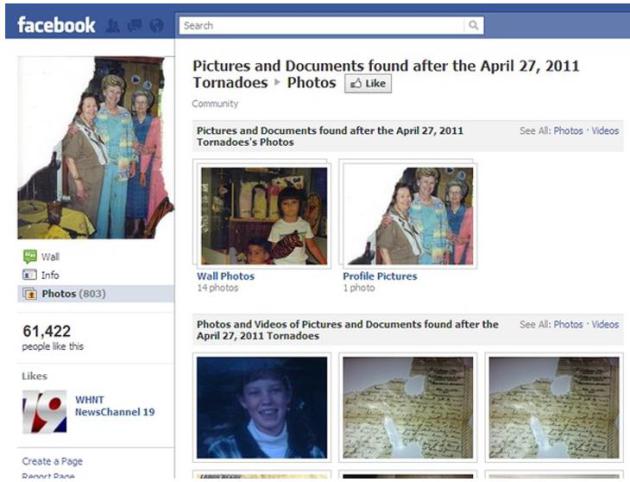
Image credit above: "Screen capture of Patty Bullion’s “Pictures and Documents found after the April 27, 2011 Tornadoes” Facebook page."
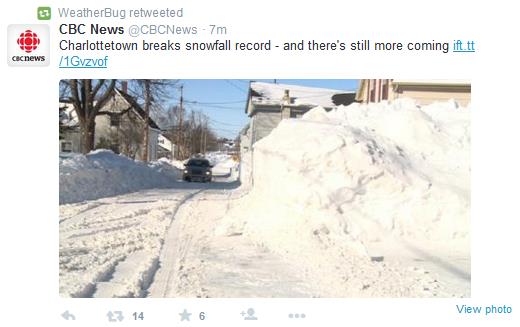
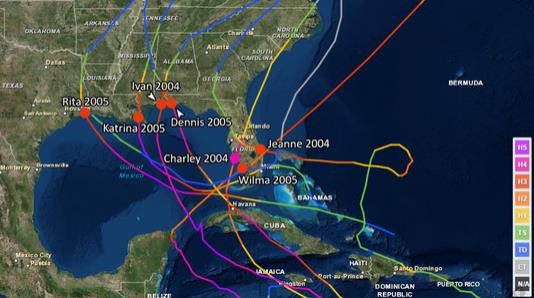
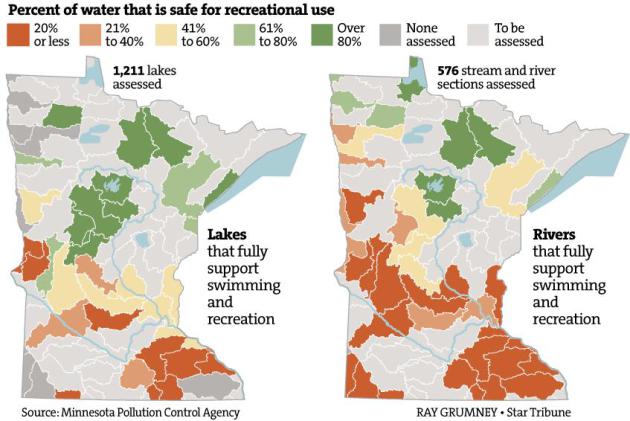
Half of Southern Minnesota Lakes and Streams Too Polluted For Safe Swimming, Fishing. The Star Tribune has the story - here's the introduction: "Half
the lakes and rivers in southern Minnesota are too polluted much of the
time for safe swimming and fishing, according to a new state survey
that could intensify efforts to protect Minnesota’s surface waters. The
finding emerged from a five-year assessment of Minnesota’s watersheds by
the Minnesota Pollution Control Agency (MPCA), which concluded that the
problems are worsening and will require 20 to 30 years to address..."
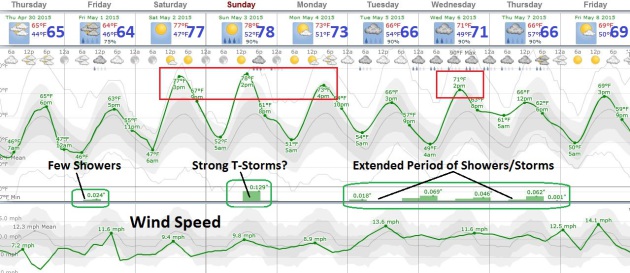
Getting Wetter.
No weather-complaints again today with highs in the upper 60s to near
70F. A few showers are possible Friday, then a dry, reasonably nice,
lukewarm Saturday before a few strong to potentially severe T-storms
rumble across the state Sunday. A period of more significant rain is
brewing for the middle of next week.
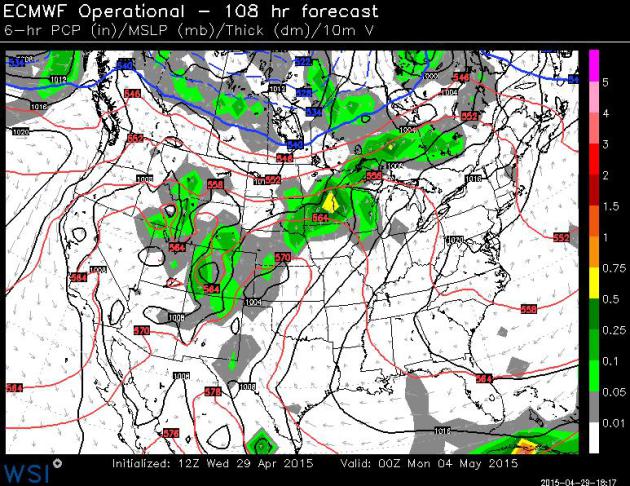
Severe Sunday?
My confidence level is still low, but there may be sufficient low-level
moisture (dew points approaching 60F) and low-level wind shear for a
few strong to severe storms Sunday afternoon and evening, mainly
southern Minnesota. If you're out and about late in the weekend keep an
eye on the sky, and the forecast. ECMWF model map valid Sunday evening
courtesy of WSI Corporation.
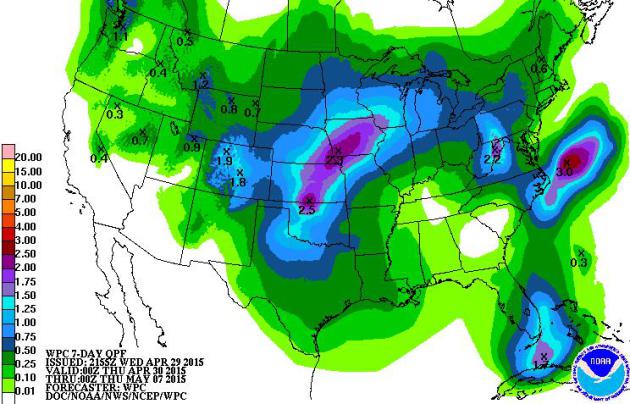
Drought-Denting Rains?
We're still down 2-4" across much of Minnesota - that's how much
additional rain it would take to pull out of moderate drought. All
models suggest that next week will be slightly cooler, and significant
wetter as Gulf moisture finally surges north. I wouldn't be surprised to
see some 1-2" rainfall amounts next week.
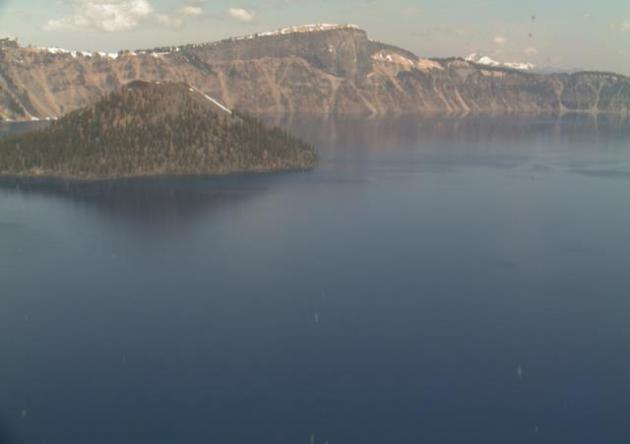
Photo credit above: "Unusually low snow levels seen at Oregon's Crater Lake on April 21, 2015." Credit: NPS
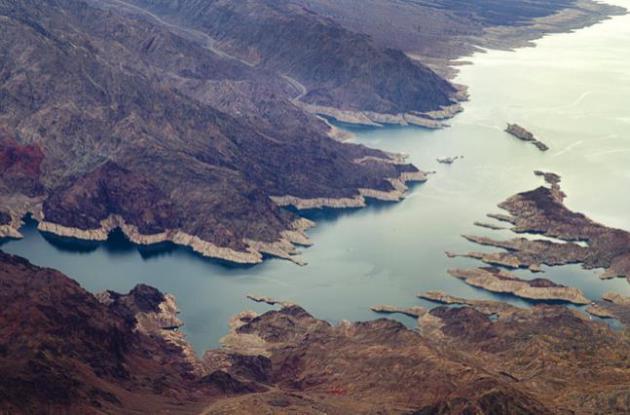
File photo above: "This photo taken, Aug. 18, 2014, shows a view of the white "bathtub" ring around Lake Mead. Taken in the area near Callville Bay Resort & Marina." (AP Photo/The Sun, Steve Marcus).
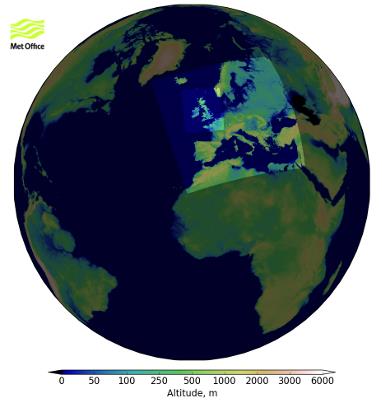
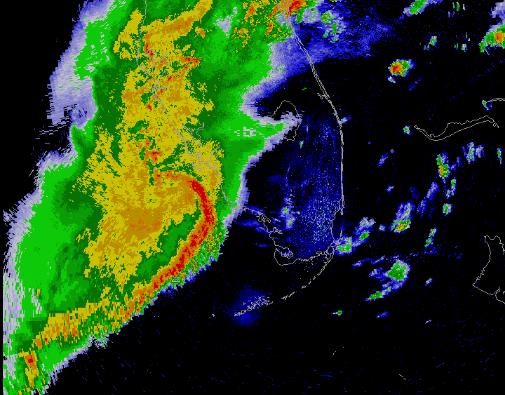
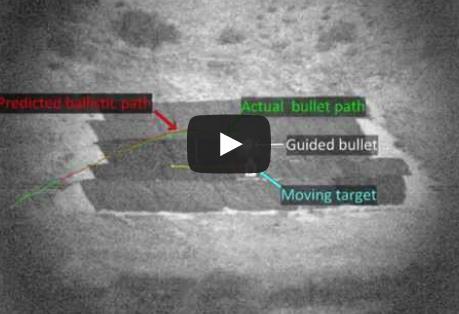
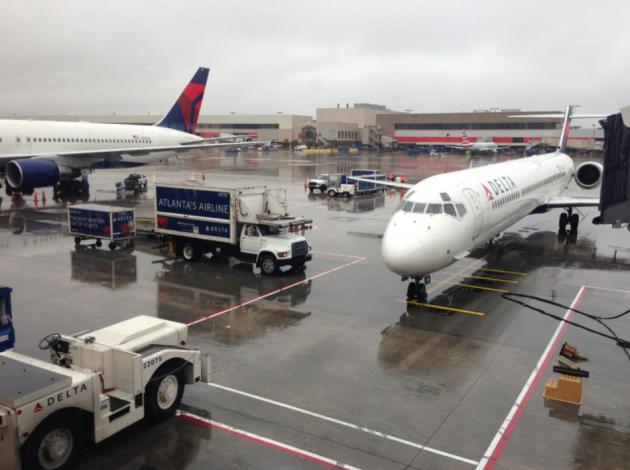
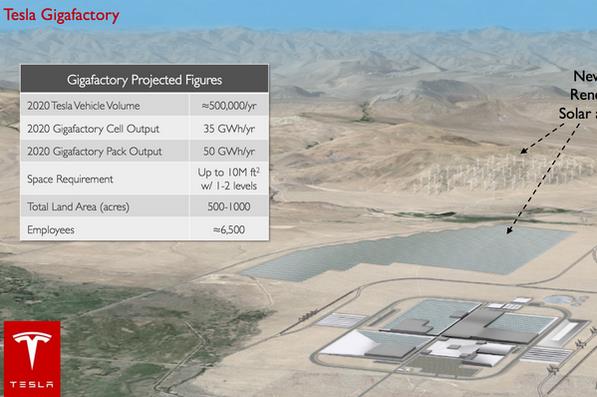


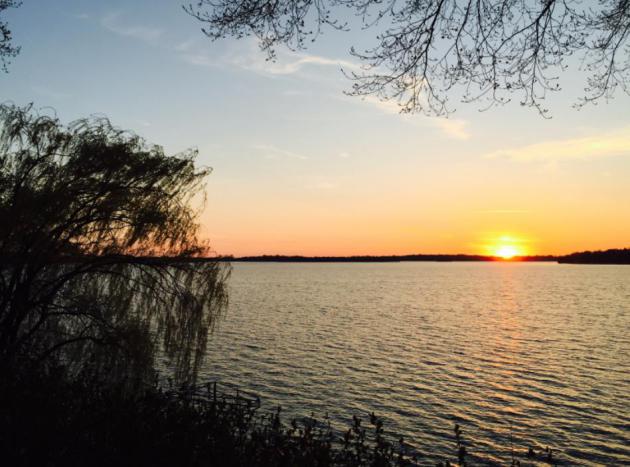
TODAY: Sunny, distractingly nice. Winds: East 5-10. High: 71
THURSDAY NIGHT: Clouds increase. Low: 48
FRIDAY: Few showers likely, cooler. High: 68
SATURDAY: Some sun, nicer day of the weekend. Wake-up: 52. High: 76
SUNDAY: PM T-storms, strong to severe. Wake-up: 60. High: 77
MONDAY: Mostly cloudy, a bit cooler. Wake-up: 55. High: 68
TUESDAY: Showery rains southern Minnesota. Wake-up: 50. High: 65
WEDNESDAY: Showers and T-storms, some heavy? Wake-up: 55. High: 66
Climate Stories...

Minnesota House Says "What Climate Change"?
I honestly thought we were better and smarter than this. I'm a
recovering Republican, one who still responds to evidence, data and
science. Call me crazy but conservatism should probably apply to the
environment, God's Creation, the very thing that sustains us. What's the
most important thing you can do as a citizen to address climate
volatility, a scientific reality that will impact our families for
generations to come? Vote persistent science luddites in St. Paul out of
office. No, they're not scientists, but many of these (alleged)
representatives aren't listening to the real scientists either. They're
sticking their fingers in their ears, protecting special interests and a
campaign donations, not the common good. They certainly aren't looking
out for your long-term interests. Here's an excerpt from The Star Tribune: "...And
yet they did, voting almost exactly along party lines against admitting
that climate change even exists. They aren’t scientists, after all.
Well, most of them aren’t. Rep. Frank Hornstein, DFL-Minneapolis,
said that the very next day the same House passed a bill legislating
that these members will have the final say on complicated, scientific,
water quality levels set by pollution control experts. “This was the
essence of last week,” Hornstein said ruefully. “This is your government
at work.”
.jpg)
Vatican Spells Out Vision For Zero-Carbon World. Once again Pope Francis is assuming a true leadership role, according to a story at The Carbon Brief; here's the intro: "The
Vatican has gathered religious leaders, scientists, politicians and
businessmen under one roof to agree that acting on climate change is a
"moral and religious imperative for humanity". This was the essence of a declaration signed
by the attendees of a one-day meeting hosted yesterday by the Holy See.
It outlines a vision for the future of the planet, including the
adoption of low-carbon energy systems, a shift of investment away from
the military and towards sustainable development, and the transfer of
money from the rich to the poor..."
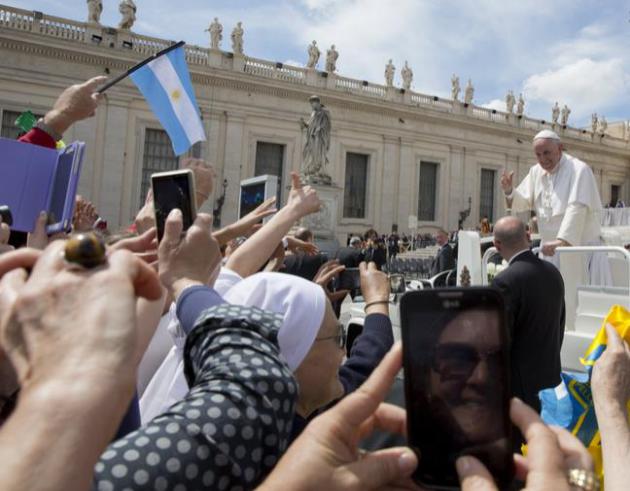
Photo credit above: "Pope Francis is cheered by faithful as he leaves St. Peter's Square at the end of the weekly general audience at the Vatican, Wednesday, April 29, 2015." (AP Photo/Alessandra Tarantino)
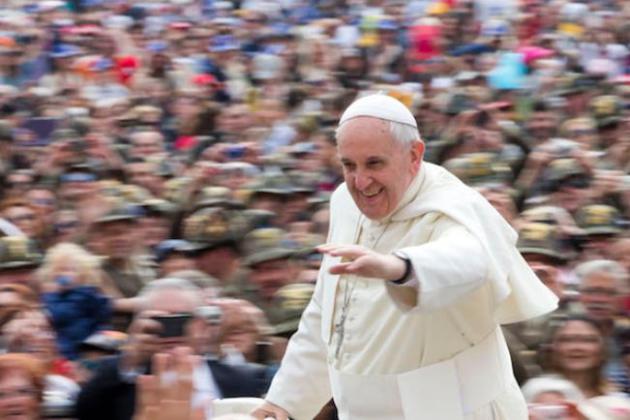
Pope Francis Steps Up Campaign on Climate Change, To Conservatives' Alarm. The New York Times reports; here's the introduction: "Since his first homily in 2013, Pope Francis
has preached about the need to protect the earth and all of creation as
part of a broad message on the environment. It has caused little
controversy so far. But now, as Francis prepares to deliver what is
likely to be a highly influential encyclical this summer on
environmental degradation and the effects of human-caused climate change
on the poor, he is alarming some conservatives in the United States who
are loath to see the Catholic Church reposition itself as a mighty
voice in a cause they do not believe in..." (File photo: AP).
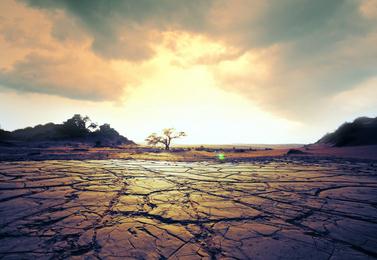
College Students Are Making Global Warming A Moral Issue. Here's Why That Scares People. Dave Roberts has a superb essay at Vox; here's a snippet: "...But
the climate movement's message, despite back-to-the-land stereotypes
still floating around, is not that humanity ought to return to a
pastoral, pre-modern, low-energy lifestyle, or that the global poor
ought to remain poor. It's that a better world is possible -- clean,
high-tech, prosperous, and just -- and that fossil fuel companies are
using their enormous legacy wealth and power to prevent the transition
to that better world. Doing so is immoral, as is supporting the
enterprise with investment dollars. It is that narrative behind which
activists are seeking to brand fossil fuel companies as social pariahs..."
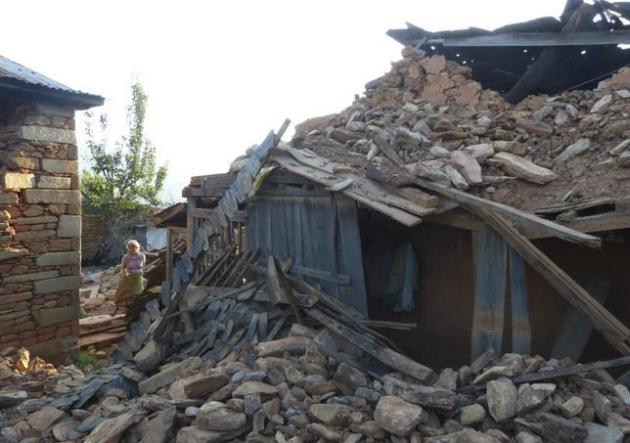
More Fatal Earthquakes To Come, Warn Climate Change Scientists. It
took me some time to wrap my brain around this - how does climate
volatility possibly impact the clashing, grinding fault lines that
result in tremors. Newsweek has some answers that are non-obvious; here's an excerpt: "The
untold – and terrifying – story behind the earthquake that devastated
Nepal last Saturday morning begins with something that sounds quite
benign. It’s the ebb and flow of rainwater in the great river deltas of
India and Bangladesh, and the pressure that puts on the grinding plates
that make up the surface of the planet. Recently discovered, that causal
factor is seen by a growing body of scientists as further proof that
climate change can affect the underlying structure of the Earth. Because
of this understanding, a series of life-threatening “extreme geological
events” – earthquakes, volcanoes and tsunamis – is predicted by a group
of eminent geologists and geophysicists including University College
London’s Bill McGuire, professor emeritus of Geophysical and Climate
Hazards..."
Photo credit above: "In this
Monday, April 27, 2015, photo provided by the International Nepal
Fellowship, an elderly woman is seen standing at her collapsed home in
the village of Pokhridada, in Gorkha district, about 25 kilometers (15.5
miles) from the epicenter of Saturday's massive earthquake in Nepal." (Thomas Meier/International Nepal Fellowship via AP)

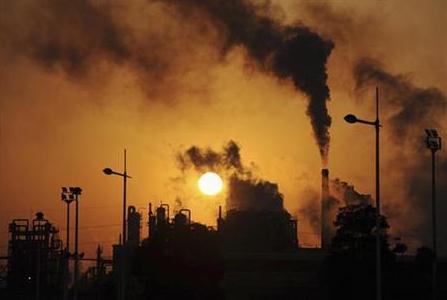
No comments:
Post a Comment